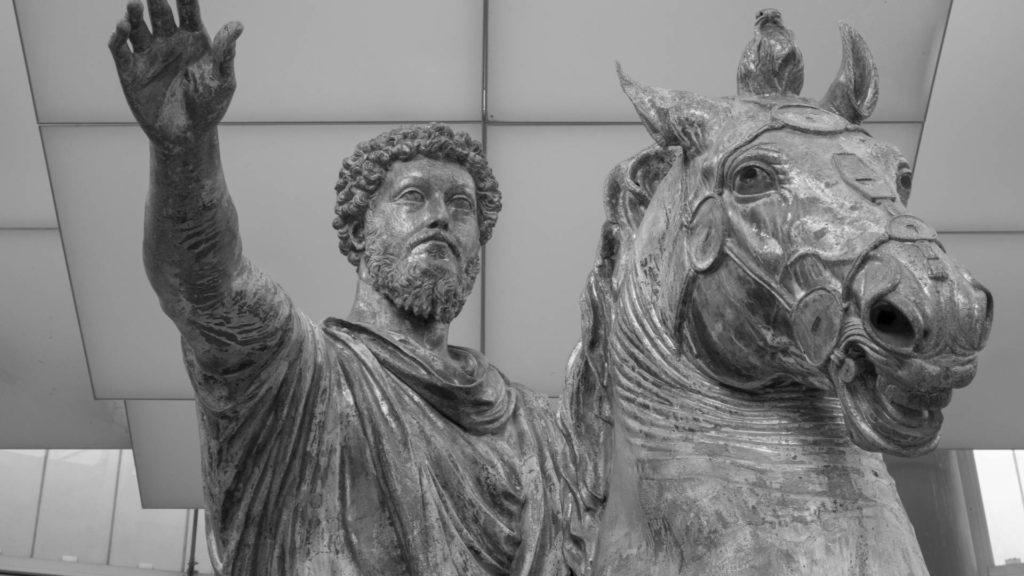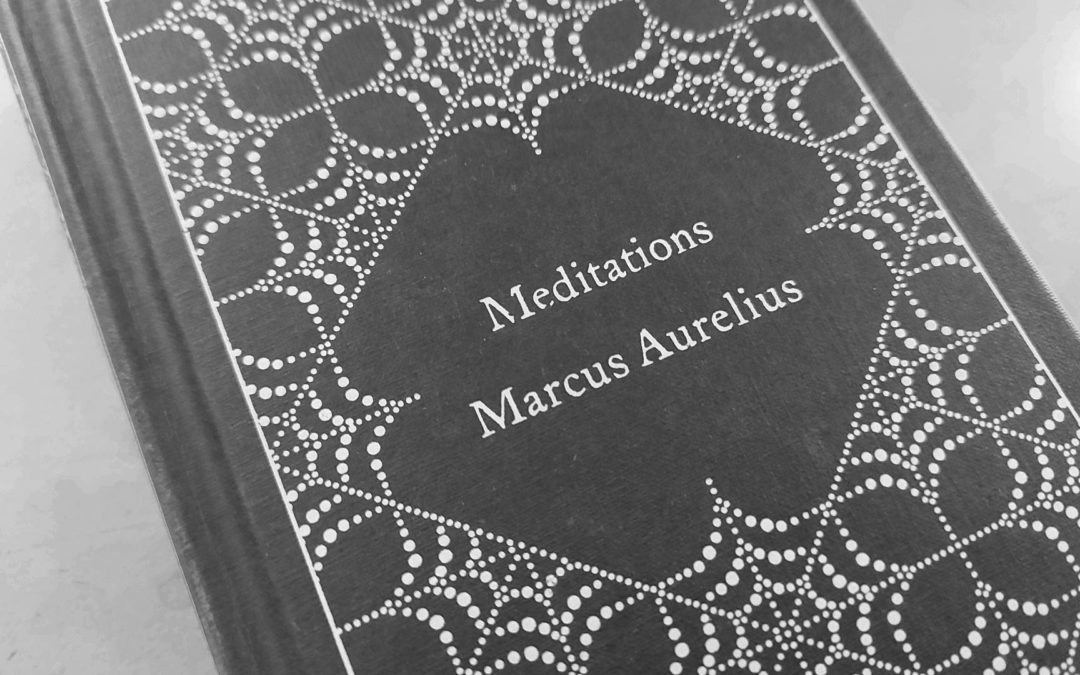Few emperors have left behind such a legacy as Marcus Aurelius (121-180) has. Not only did the Roman emperor manage to expand the Empire in his time, he also heavily indulged himself in the art of philosophy. In fact, Marcus Aurelius is now recognised as one of the most influential figureheads of the school of the Stoa; or stoïcism in general. Stoïcism learns us that we ought to not let ourselves float adrift by our emotions, but that we may find contentment within the reasoning of Nature. For today’s inspiration and a stoïc influence on what constitutes a good and content life, let us reflect on an excerpt from his Meditations, a book that I can fully recommend for daily readings.
Book 7: Readings 67 – 70
Reading 67
The way nature has blended you into the compound whole does not prevent you drawing a boundary around yourself and keeping what is your own in your own control. Always remember this: remember too that the happy life depends on very little. And do not think, just because you have given up hope of becoming a philosopher or a scientist, you should therefore despair of a free spirit, integrity, social conscience, obedience to god. It is wholly possible to become a ‘divine man’ without anybody’s recognition.
Reading 68
Live through your life without pressure and in the utmost contentment, even if all are clamouring what they will against you, even if wild beasts are tearing off the limbs of this poor lump of a body accreted round you. What in all this prevents the mind from preserving itself in tranquility, in true judgement of circumstance and readiness to use any event submitted to it? So that Judgement says to Circumstance: “This is what you really are however different you may conventionally appear”; and Ready Use says to Event: “I was looking for you. I always take the present moment as raw material for the exercise of rational and social virtue – in short, for the art of man or god.” Because a god or a man can assimilate anything that happens: it will not be new or hard to handle, but familiar and easy.
Reading 69
Perfection of character is this: to live each day as if it were your last, without frenzy, without apathy, without pretence.
Reading 70
The gods, who are free from death, do not resent their need throughout all the length of eternity to tolerate in such numbers such worthless creatures as men: what is more, they even care for them in all sorts of ways. And do you, with the merest time before your own exit, refuse to make the effort – and that when you are one of the worthless creatures yourself?


Recent Comments